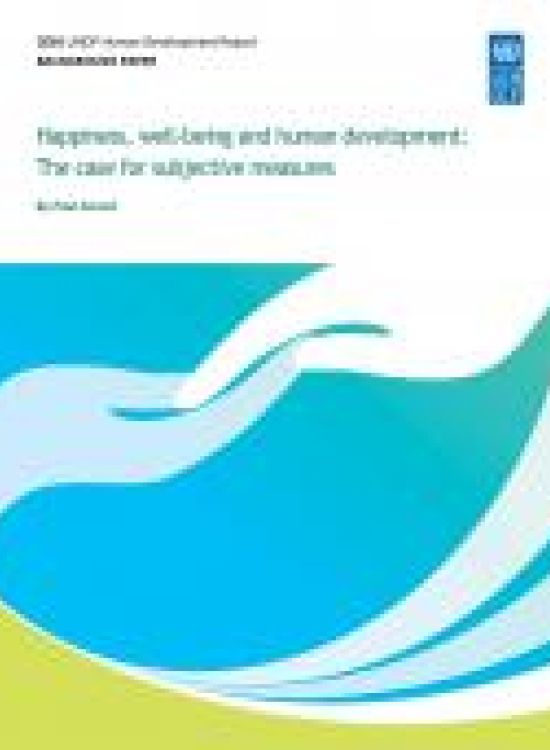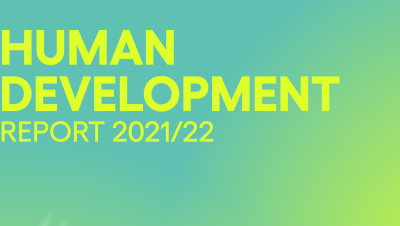Happiness, well-being and human development

UNDP (United Nations Development Programme). 2016. Happiness, well-being and human development. New York.
Happiness, well-being and human development
In recent years, economists have made increasing use of psychological measures of well-being. This paper argues that these data and models can make important contributions to human development. The paper begins by offering an overview of some key concepts, definitions and properties of subjective well-being measures, highlighting, particularly, overall assessments of life satisfaction, satisfactions with particular domains, eudaimonic measures and measures of human potential. It then moves on to consider some of the key empirical research findings concerning general psychological mechanisms underpinning subjective well-being, and drivers of domain satisfactions and well-being in youth and older age. The paper concludes with examples of subjective well-being applied to a range of human development issues and an assessment of ways in which such analyses can complement the Human Development Index as it has evolved over the past quarter decade.

